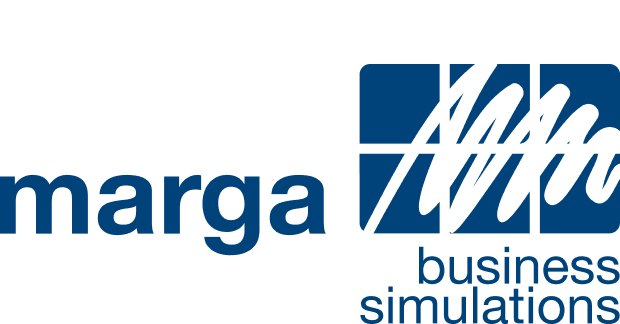How business games help you to promote important soft skills in your company
Not only technical expertise, but also soft skills can be trained. But how can I best promote these skills as part of further training without neglecting the development of subject-specific skills?

How business games help you to promote important soft skills in your company

In addition to factual know-how, soft skills play a more central role in professional life than ever before. Flat hierarchies and, thereby, increasing areas of responsibility, permanent global crises and, last but not least, the steady rise in virtual collaboration through cross-location and remote working change the professional life.
Soft skills are becoming increasingly important. According to the Bertelsmann Stiftung’s Jobmonitor, skills such as engagement, teamwork, self-reliance, communication skills, planning and organizational skills are among the top skills in Germany (https://www.jobmonitor.de/soft-skills/top-ten).

Not only professional expertise, but also soft skills can be trained. But what is the best way to promote these skills in the context of continuing education without neglecting the training of subject-specific competencies?
Business games offer exactly that. In addition to professional competencies (management know-how), methodological competencies (concrete application of technical knowledge in the simulation), social competencies through team interaction and personal competencies such as self-confidence and personal responsibility are strengthened through self-directed learning.
In business games, participants control their own company as management and make decisions in different areas of the company. The teams independently develop a strategy and develop appropriate measures from it. In doing so, they find themselves in a dynamic market simulation and are in direct competition with other teams.
Various soft skills are promoted in the process:
Teamwork

The team idea plays an important role in a business game. It places the participants in decision-making situations that have to be mastered together. To do this, everyone has to find his or her role in the team.
The exchange within the group is central. Intensive discussions, voting and joint decision-making train the participants’ ability to work in a team. Only if the team members work together and pursue the same goals and strategies, they will lead their company to success.
Personal responsibility and organizational skills

In business games, participants work in a largely self-directed manner. In each decision-making period, the teams analyze their results within a given time frame and make new decisions based on them. Good time management becomes important.
The participants are confronted with new challenges in each game period and are challenged to develop their own methods for solving problems. In doing so, they have to get the team to the finish line as a whole. Everyone takes responsibility in the group. This promotes commitment and an independent and self-organized way of working. Self-confidence and personal responsibility, as well as a high tolerance for frustration and resilience through challenges or even failures in the course of the game are strengthened.
Communication skills

In business games, participants make decisions together as a team. This includes intensive discussions about the strategy and the measures to be taken. Participants train to represent their own opinions, to be responsive to their team members and to find compromises. They are confronted with situations that they also encounter in their everyday working lives. In the business game, they can face these challenges in a safe space.
Conflict solution and critical thinking skills

Successes and fun in the simulation strengthen team spirit and motivation. At the same time, conflicts, disagreements and failures in competition are also part of a business simulation. Dealing with these situations together not only reinforces social skills such as the ability to deal with criticism and conflict, but also leads to a more intensive examination of the learning content. The participants are always supported by qualified trainers who provide feedback, mediate in conflict situations, and encourage joint reflection.
Business games are an excellent method to support the development of soft skills. However, you should always keep in mind that the main focus is on training management know-how and business decision-making skills. Therefore, always consider that the use of a business game alone does not, of course, guarantee the acquisition of social and personal skills. It is much more about strengthening and consolidating soft skills.
You have
questions or are
interested in our business simulation?
We will be happy to help you! Arrange a non-binding consultation with MARGA Program Director Dr. Sandra Wagner in just a few clicks.





